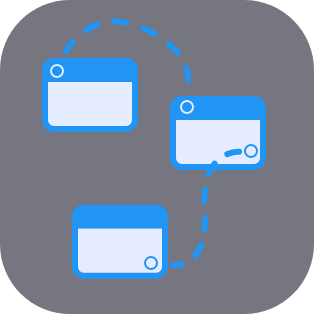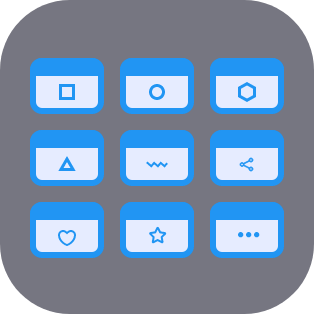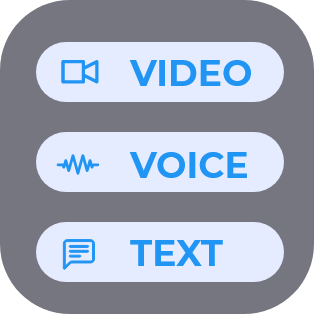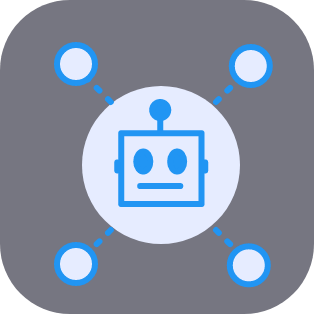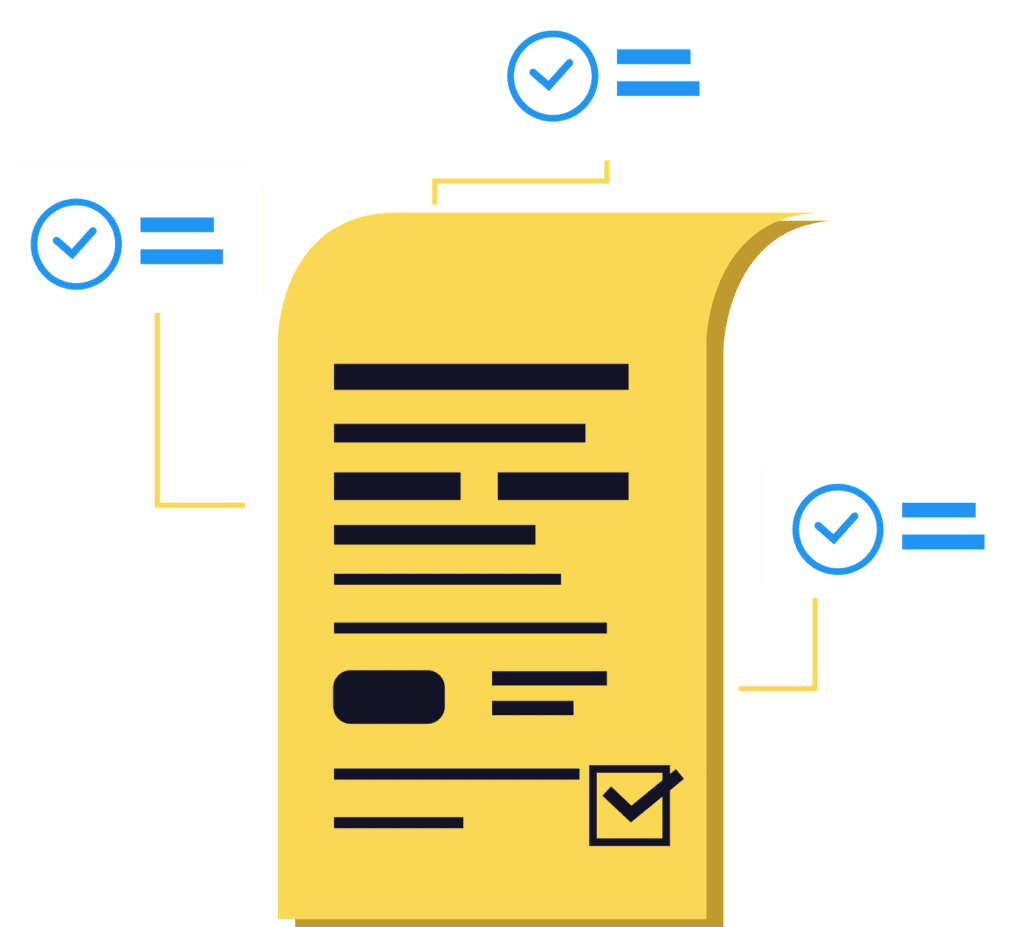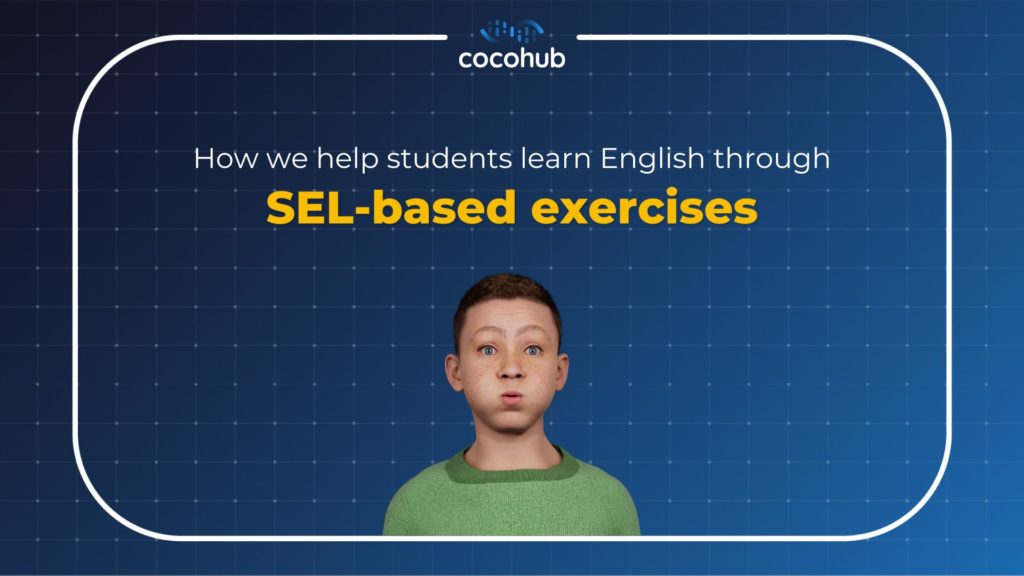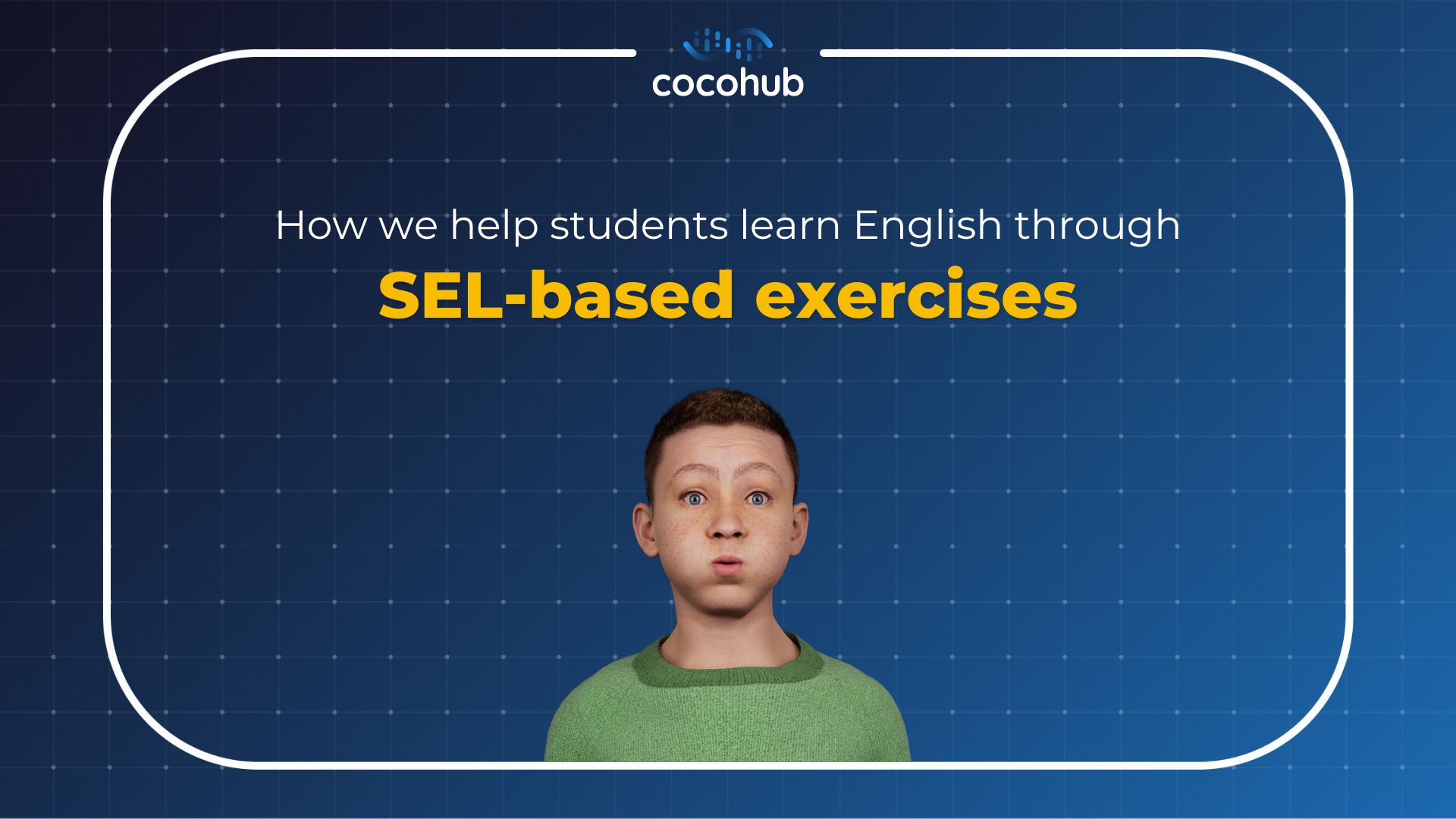Beyond Virtual’s (formerly cocohub) technology is an engaging platform for developing social-emotional learning (SEL) competencies through English learning.
Our virtual human acts as a virtual teaching assistant. Students interact with the virtual human in English conversation, and along the way, they practice and develop their SEL skills. Students can practice in private – in this way, the virtual human neutralizes the anxiety of live social situations. In addition, students can practice whenever and wherever they want, and for unlimited sessions. Along the way, our platform delivers formative assessments and positive, personalized feedback. This personalized method sharpens SEL skills in an engaging, fun way.
Recently, Beyond Virtual won the first round of the SEL Challenge. We are now proceeding to the final stage. To ensure success, we are building a specialized content library designed to develop students’ SEL competencies.
Spiral Process
Beyond Virtual’s method of SEL infusion supports the students through a spiral process of learning. Students practice English and SEL skills while gradually advancing in the level of difficulty. Along the way, they review and reinforce previous material. Students speak with our virtual teaching assistant through the friendly, simple Beyond Virtual interface.
Our team has crafted SEL exercises that are specially adapted to the developmental level of middle school students. Furthermore, teachers can easily create lessons based on their own content. In addition, they can personalize content to the student’s abilities and pace. Additionally, the English vocabulary, grammar, and listening comprehension levels align with the Israel Ministry of Education curricula for seventh and eighth grades.
Self-Awareness
Students begin by learning and practicing basic feelings vocabulary in English. Thus, they expand the range of emotions that they can identify and verbally express. They practice using this vocabulary with the virtual human – a safe space to practice freely and comfortably without fear of embarrassment. As a result, with these exercises, the student develops self-awareness, the most basic of the five social-emotional learning competencies (in the CASEL framework).
Social Awareness
Then, students progress to a series of guided dialogues. Here the student acts as a mentor to the virtual human. The student listens to the virtual human’s problems and helps her identify her feelings. Then the student gives the virtual human advice on how she can respond to challenging social situations. These role-play dialogues focus on developing the SEL competency of social awareness. Further, the SEL dialogues also strengthen empathy and real-life relationship skills.
Reflection and Feedback – Formative Assessment
Throughout, Beyond Virtual’s interface provides the students with formative assessments. To encourage students to improve, students reflect regularly on their progress and their experience. For example, they answer questions to evaluate their own SEL skills. So, this enables the teacher to personalize the SEL learning process and adapt it to each student’s needs.
Professional Guidance
Adi Shtrul (psychologist and national coordinator, SEL.IL at Reichman University) is supporting Beyond Virtual in designing the SEL program:
“It’s important for students to improve throughout the year in stages. They begin with understanding basic feelings vocabulary, then progress to identifying what they feel. Then, they move on to identifying the other person’s feelings. Throughout the year, students expand the range of feelings that they learn to identify and talk about.”
See It Work
Here’s a link to a demo of an SEL dialogue on feelings, empathy, and how to respond to bullying.
You can try it by clicking on this link, or simply watch the video:
Read about other ventures of Beyond Virtual.ai in EdTech:

